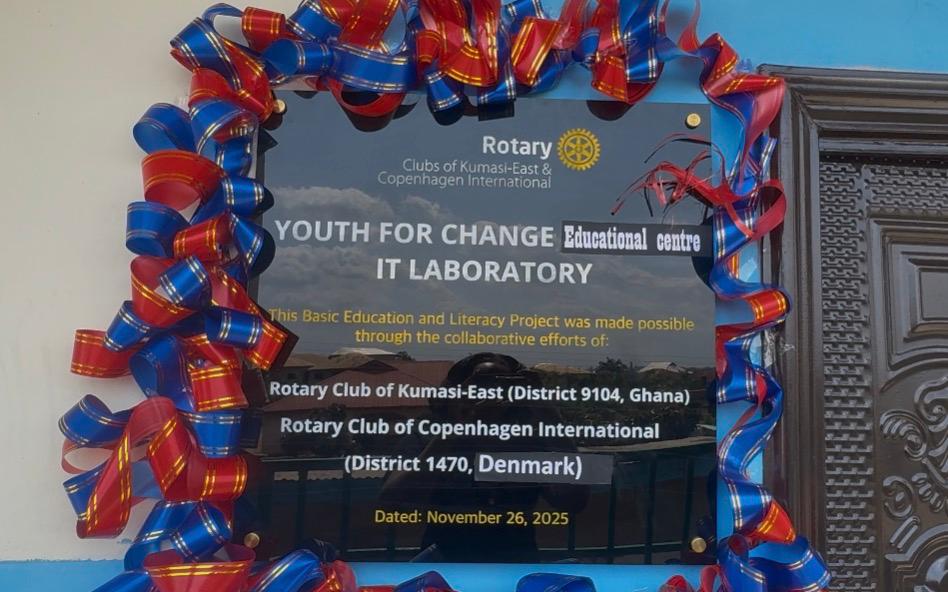The Rotary Club of Kumasi East has expanded digital learning opportunities in the Ashanti Region through the commissioning of a new ICT laboratory designed to support both students and inmates. The facility aims to close the digital divide, strengthen computer literacy and support social reintegration for inmates who need skills to rebuild their lives after serving their sentences.
The project, which is valued at more than forty thousand dollars, was completed in partnership with the Rotary Club of Copenhagen International. It includes twenty five desktop computers, a projector, a scanner, backup power and a security system to protect the equipment. Officials said the priority is to give young learners and inmates a practical environment to build computer skills that meet modern academic and workplace demands.
Club President Gina Acheampong explained during the commissioning ceremony that digital literacy is no longer optional for young people. She stated that employers expect graduates to understand basic computing, online research, typing, coding and digital communication. According to her, students in underserved communities often face long term disadvantages because of the lack of access to computers, so the ICT lab is intended to level the playing field.
One of the most ambitious aspects of the project is the inclusion of inmates from the Amanfrom Prison. Selected inmates will be allowed to use the lab under close supervision. Acheampong clarified that the computers will be restricted to educational activities only. She emphasized that the objective is to improve rehabilitation outcomes by preparing inmates with useful skills that can help them secure jobs when they return to society.
Former Assistant Governor of Rotary International, Awal Babah Alargi, said Rotary has consistently invested in community development and this project is one of the most impactful initiatives the club has taken on in recent years. He noted that computer literacy has become a basic requirement and the lack of access should not determine a child’s future.
The Project Chair, Engineer Francis Tettey Ahwah, commended the entire Rotary team for their commitment, especially when the fluctuating Ghana cedi created financial pressure. He stressed that the club plans to maintain the lab and ensure it remains functional for many years.
The Principal of the Youth for Change Educational Centre, Ali Ibrahim, expressed profound gratitude on behalf of teachers and students. He said the school previously struggled with ICT lessons because students did not have computers to practice with. The new lab, he said, will dramatically improve their performance and confidence.
The introduction of the ICT lab is seen as a major development for the community. It provides hope, opportunity and a pathway toward knowledge and employment for students and inmates. Stakeholders believe it will change lives and strengthen the long term potential of young people in the area.

